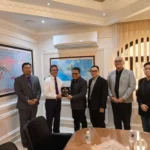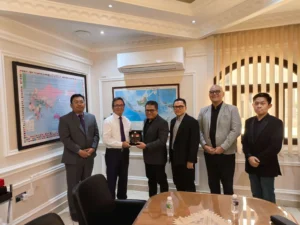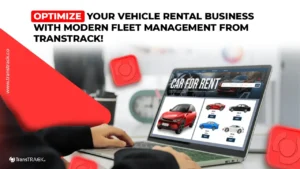Bonded Logistics Center, What are its Forms and Activities?
Posted on February 29, 2024 by Nur Wachda Mihmidati

A Bonded Logistics Center (PLB) is a facility specifically designated for the storage, management, and shipment of imported and exported goods with strict supervision and security facilities. PLBs are usually located in areas designated by the government, such as in certain industrial zones or areas. These facilities serve to ease the international logistics process by providing temporary storage and other facilities necessary for the processing of goods before they enter the country or exit the country.
PLBs are generally regulated by the government and managed by logistics companies or operators that have expertise in handling the import and export of goods. In different countries, regulations and policies related to PLB may vary, but the goal is generally to encourage smooth and efficient international trade. Check out the full article with TransTRACK!
Forms of Bonded Logistics Centers
The following is an explanation of the forms of bonded logistics centers (PLB):
Large Industrial PLB
This PLB is designed to support the logistics needs of large industries, which may involve large amounts of storage, processing and distribution of goods on a large scale. Examples are PLBs that are integrated with large factories or industrial estates.
PLB IKM (Small and Medium Industry)
This PLB is more focused on supporting the logistics needs of small and medium industries. Typically, these PLBs are smaller in scale and may focus more on the storage and distribution of smaller quantities of goods.
Air Cargo Hub PLB
This PLB focuses on supporting air cargo logistics activities, such as temporary storage, cargo handling, and distribution of goods via air transportation.
E-commerce PLB
A specialized PLB to support e-commerce logistics activities, which often require fast and efficient processing and distribution of orders that arrive online.
Finished Goods PLB
This PLB focuses on the storage and distribution of finished goods or finished products that are ready to be distributed to the market or end consumers.
Staple Goods PLB
This PLB mainly handles the storage and distribution of staples or daily necessities, such as food, beverages, or other consumer goods.
Floating Storage PLB
This type of PLB may be a temporary storage facility on a ship or other offshore structure. It is typically used to store large quantities of goods while awaiting further shipping or distribution processes.
Commodity Goods Export PLB
These PLBs focus on supporting the export of commodity goods, such as agricultural, mining, or other natural resources. These facilities may have specialized infrastructure to handle large quantities of goods and international shipping requirements.
Each of these forms of PLB has different roles and functions depending on the needs of the industry and the type of goods it deals with.
Bonded Logistics Center Activities
Activities commonly carried out at a bonded logistics center (PLB) include several processes related to the logistics of importing and exporting goods. Here are some of the activities that are usually carried out at a PLB:
Receipt of Imported Goods
PLB receives imported goods from the port or airport after going through the customs process. These goods are then temporarily stored at the PLB facility.
Temporary Storage
Imported or exported goods are temporarily stored in warehouses or storage facilities within the PLB. This storage may be carried out within a period of time determined in accordance with the applicable customs regulations.
Processing and Maintenance of Goods
At PLB, imported goods can go through processing, maintenance, or repackaging as needed. For example, they can be inspected, relabeled, or repaired if needed before being distributed to the final destination.
Document and Customs Management
PLB also undertakes the management of customs documents related to the import and export of goods. This includes the processing of import, exporter, and other documents required to ensure compliance with international trade regulations.
Distribution of Goods
After going through the process at PLB, the goods can be distributed to their final destination, be it within the country or overseas. This distribution can be through various modes of transportation, such as land, sea, air, or a combination of several modes.
Quality Control
Some PLBs are also equipped with facilities to conduct quality control of goods, including testing and inspection, to ensure that the distributed goods meet the set standards.
Supervision and Security
PLBs are usually equipped with strict surveillance and security systems to protect the goods stored in them from the risk of theft, damage or loss.
Inventory Management
PLB also conducts inventory management of the imported and exported goods stored in it, including stock monitoring, updating the status of goods, and reporting to relevant authorities.
All of these activities are designed to support efficient and secure international logistics processes and ensure that traded goods can be processed quickly and in accordance with applicable regulations.
By utilizing the Logistic Service Integrator provided by TransTRACK, companies can optimize their operations in bonded logistics centers (PLBs) more efficiently and effectively. With a variety of features and services offered, such as integrated supply chain management, real-time tracking and monitoring, and in-depth data analysis, TransTRACK provides the best solution for managing various logistics activities in PLBs.
Not only that, TransTRACK’s Logistic Service Integrator also helps improve visibility and control over the entire logistics process, accelerate the flow of goods to and from PLB, and reduce risks related to loss or damage to goods. Thus, companies can maximize the potential of PLB as an efficient and reliable distribution center in running their international trade operations.
If you would like to know more about how TransTRACK’s Logistic Service Integrator can support your PLB operations, feel free to contact their team today and start optimizing your business potential in global trade.
Topic :
Recommended Articles

Improving Fleet Safety through Traffic Accident Prevention with ADAS
Featured Product | February 12, 2026
 Bahasa Indonesia
Bahasa Indonesia







